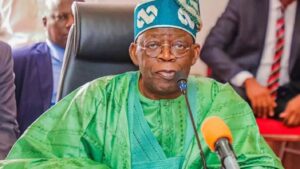Abdullahi Gwarzo, the former Minister of State for Housing and Urban Development, has spoken out about his unexpected removal from office by President Bola Tinubu.
In an interview with BBC Hausa Service, Gwarzo clarified that his dismissal was not due to any performance issues or misconduct but was rather motivated by political calculations related to regional balance.
Gwarzo expressed his surprise at the decision, explaining that there had been no allegations of wrongdoing on his part.
“I was taken aback because I was not found guilty of any wrongdoing or poor performance.
As the Minister of State, I worked closely with my senior minister and played a significant role in the ministry’s operations,” he said.
He further stressed that his removal had no basis in performance but was rather driven by political considerations.
Prior to the announcement of his ouster, Gwarzo revealed that President Tinubu had personally informed him of the decision.
During their conversation, Tinubu explained that the Kano North region, which Gwarzo represented, had an excess of political appointments and that a balance needed to be struck. Gwarzo, however, found this reasoning unconvincing.
“The President told me that Kano North was overloaded with political officers, and so there was a need for balance. We provided our advice, but it was disregarded.
From that point, I began to suspect that other individuals might have played a role in this decision because, to me, that reason did not justify my removal,” Gwarzo said, hinting at possible political maneuvering within the party.
While expressing disappointment over his dismissal, Gwarzo also voiced his opinion on who should have been appointed to replace him.
He argued that the ministerial slot allocated to Yusuf Ata, the new Minister of State for Housing and Urban Development, should have gone to Nasiru Yusuf Gawuna, the 2023 governorship candidate in Kano.
“If the slot was meant for Kano Central, why not give it to Gawuna, who is the 2023 governorship candidate and a prominent figure in the region?” Gwarzo suggested.
He emphasized that Gawuna should have been the first choice for the position unless he declined, in which case another candidate could have been considered.
“Candidates from Plateau and Zamfara states who contested for governorship positions were appointed to roles,” Gwarzo noted.

His comments highlight growing concerns about political appointments and regional balance within the current administration.
Gwarzo’s outspoken remarks shed light on ongoing tensions within the party and raise questions about the allocation of key positions in President Tinubu’s government.
His continued influence in Kano’s political scene and frustration with what he perceives as favoritism in the appointment process were evident throughout the interview.




